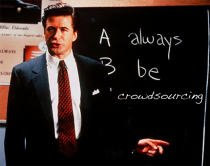Immigration: A reflection
|
Perhaps more than any other modern-day nation state, immigration is deeply interwoven into both the personal and national legacies of American culture and history. As with any matter close to the heart, it has also raised its fair share of differing opinions and debate as Americans, both the public and government officials, struggle to find that balance between growth and protecting the interests of its own citizens. In spite of the financial crisis on Wall Street, America still remains for many a symbol of opportunity and a means of progress. In the 1980s and early 1990s, many Chinese saw America simply as “mei guo” (beautiful country), a nation which despite its hardships and language barriers, was able to provide a gateway to opportunity.  As a result, more individuals want to make the journey than visas available, creating an ever-so-steady influx of undocumented immigrants. While China’s growing middle class and its own economic awakening has shifted the tide of those looking to make the trans-oceanic move, there still remains a relatively large group who live between the hopes of the American dream and the constraints of passing each day without legal status. Earlier last month, I had the chance to interview one of the individuals who had come to the US like so many others in hopes of pursuing the American dream. What Tony Huang found was a reality that rarely lived up to the expectations he had imagined. While Tony today leads a comfortable life that is much more aligned with those initial expectations of security and relative peace, Huang will also be the first to tell you that life has not always been like this. As recently as five years ago, Huang lived in uncertainty working from dawn till dusk. As a reporter, my job is to remain as objective as possible, and to tell stories just as they are. But even as reporters, we are not immune. As I sat listening to Tony’s story, I found myself torn: on one hand, I empathized with the plight that he has faced waking up at the crack of dawn to make the two hour plus commute from his shared bedroom in Excelsior to his factory job in San Leandro while living in constant fear of losing his job and deportation, all because he did not have the necessary papers. On the other hand, however, was this not a path that he himself had chosen by disregarding the American immigration system and process? We can always say that the system itself is flawed, but I’m not sure if that is reason enough to not honor a legal code which also gives definition to the very American rights of “life, liberty, and the pursuit of happiness.” We are always moved by individual stories because they tug at us emotionally. We can identify with the very personal stories, and as I listened to Tony’s story, I could hear the echoes of my parents’ experiences and my childhood. While we were part of a group of lucky ones who were able to obtain visas, many of the trials remain the same. As Tony himself repeatedly stated, my story is not unique – there are so many more like me. And so I guess it begs the question – what responsibility, if any, do we as Americans have to undocumented immigrants? And what kind of system should be set in place that strikes that balance between these very personal stories and the types of challenges they can present in aggregate? Today, I invite you to read an account of Tony’s story here. While he (understandably) was hesitant to have his photograph taken, let me try to paint you an image of Tony, and in the process, many of those like him. In his 50s, Tony is mild-mannered and speaks with a sort of gravity and complacency that hints at a man who has been through many different stages in his life. He is dedicated to his work as a foot masseuse, and like all parents, simply wants the best for his now 25-year-old daughter, who is happily recently married and bought a small condo a short drive away. There is an eagerness as Tony relays his story, and yet a matter-of-fact nature as he repeatedly states how “ordinary” his story is. “An arduous journey to fulfill a vision” |


